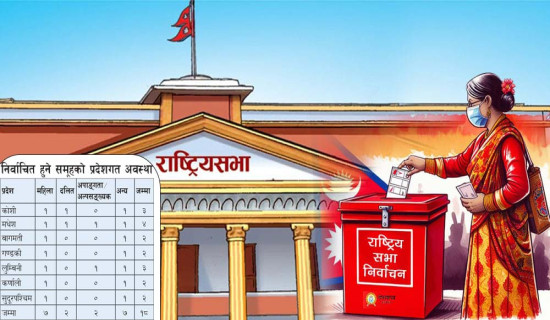- Sunday, 25 January 2026
Mercury fuel used in gold mining in Senegal
Kedougou, Senegal May 14: The quickest way to separate gold from rock, Sadio Camara says, is with a drop of mercury. She empties a dime-sized packet of the silvery liquid into a plastic bucket of muddy sediment outside her home in southeastern Senegal. With bare hands and no mask, she swirls the mixture as her children look on.
"I know mercury isn't good for your health — that's why I don't drink the water it comes into contact with," she said. "I only process small amounts of gold, so there's no danger."
But even small-scale exposure can carry serious risks.
Across West Africa, mercury — a potent neurotoxin — remains the dominant method for extracting gold from ore in the region's booming informal mining sector, much of it illegal and unregulated. In Senegal's gold-rich Kedougou region, women like Camara use the metal regularly, often without protective gloves and masks, to make a living.
Mercury exposure can cause irreversible brain damage, developmental delays, tremors and loss of vision, hearing and coordination. Once released, it spreads easily through air, water and soil. Particularly after heavy rains, it contaminates rivers, poisons fish and accumulates up the food chain.
A 2018 Duke University-led study found mercury levels in soils, sediments and water near artisanal gold mining villages in southeastern Senegal that exceeded safety thresholds set by the World Health Organization and U.S. Environmental Protection Agency by 10 to 100 times.
In artisanal mining, mercury is prized for its ability to bind quickly and easily to gold. Miners mix the liquid metal into crushed ore, and the mixture is then heated — often over open flames — to evaporate the mercury and leave behind a lump of gold. The process is cheap, effective and dangerous.
"If it hurt right away, like a knife, people would stop. But the issue is that it takes years for the dangers to manifest," said Doudou Dramé, president of the Observatoire Territoriale du Secteur Extractif, an organization that advocates for safer conditions for gold miners in Kedougou. "People are dumping it directly into the river. They're burning it in the open, releasing toxic smoke into the air. It's extremely dangerous."
Artisanal and small-scale gold mining is the largest global source of mercury emissions, even more than the burning of coal, according to the UN Environment Programme. In Senegal alone, artisanal mines are estimated to release between 12 and 16 metric tons of mercury each year.
"Kedougou has rich land — very rich land," Dramé said. "Now mercury is everywhere. Our animals consume it, and it comes back to us. Even the soil is no longer fertile."
Along the muddy banks of a rust-colored pond, dozens of women wade knee-deep as they rinse piles of sediment in search of gold.
Children dart between mounds of earth while the runoff pools around their feet. With little access to clean water, many women spend long hours in local waterways to work, bathe their children, wash clothes and clean dishes.
"Women are much more exposed than men," said Modou Goumbala, the monitoring and evaluation manager at La Lumiere, an NGO that supports community development in southeastern Senegal.
That exposure can be especially dangerous for pregnant and nursing women. Mercury can cross the placenta, putting fetuses at risk of developmental delays and birth defects. Infants may also absorb the toxin through contaminated breast milk. (AP)
















